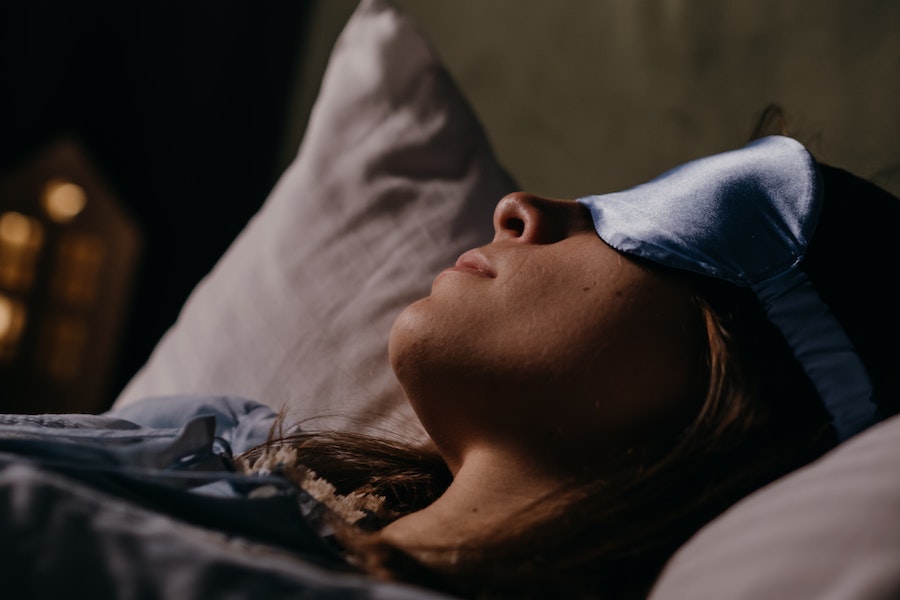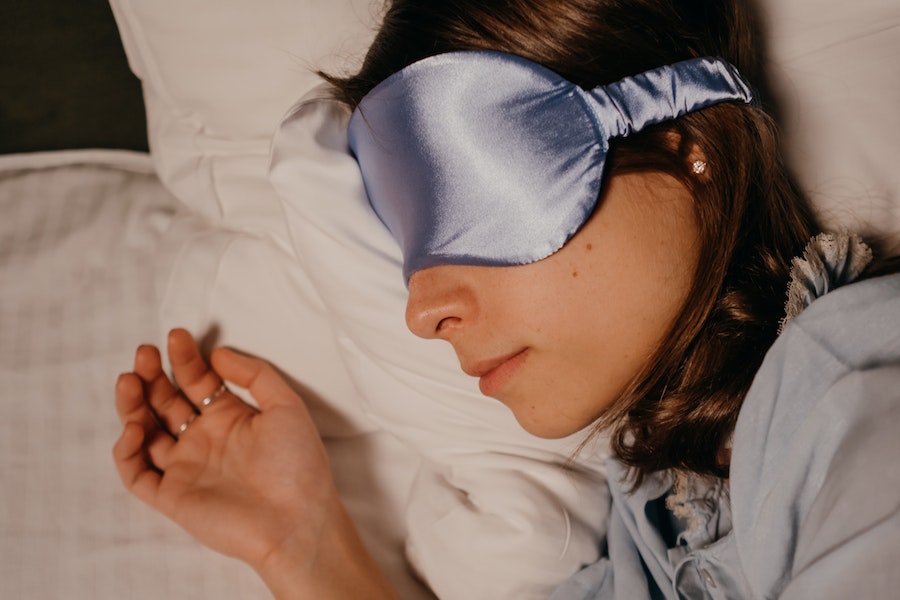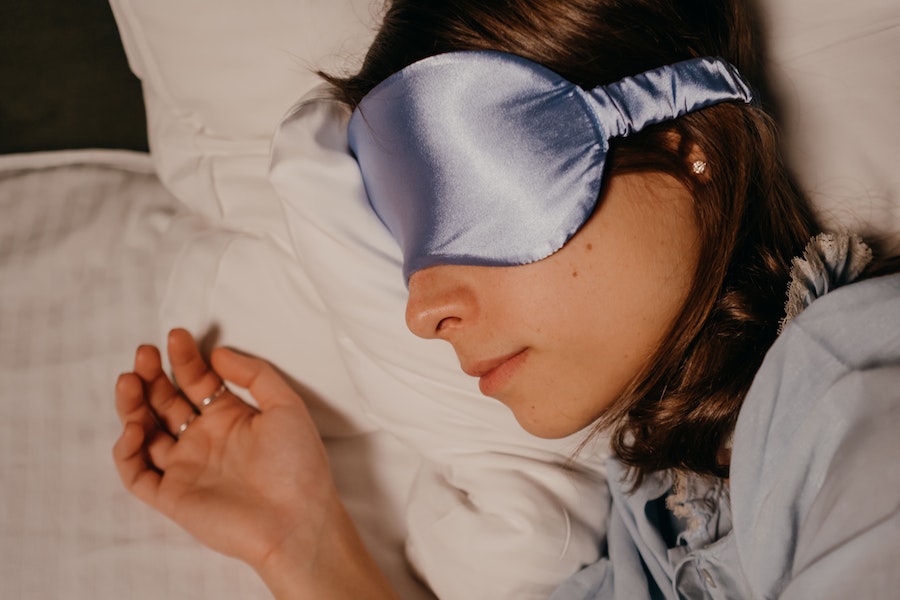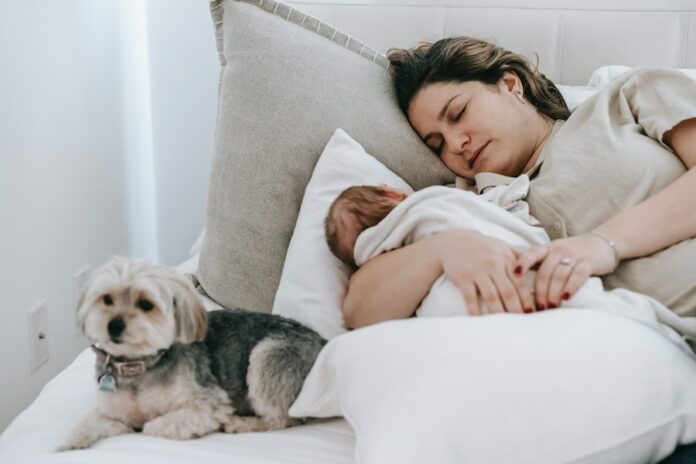It’s the end of another long day and all you want to do is how to fall asleep quickly, so you can get a good night’s rest. But sometimes that’s easier said than done. If you’re having trouble falling asleep, try the following tips below.
Why a good night’s sleep is important
We all know how it feels to be exhausted after a long day. You just want to collapse into bed and fall asleep as quickly as possible. But sometimes, despite being tired, you just can’t seem to drift off. If you’re struggling to get a good night’s sleep, you’re not alone. Millions of people around the world have trouble sleeping at night.

But why is sleep so important? For one, getting enough sleep is vital for your physical health. When you don’t get enough sleep, your body doesn’t have time to repair itself. This can lead to a whole host of health problems, from a weakened immune system to an increased risk of heart disease.
Not getting enough sleep can also affect your mental health. Sleep deprivation has been linked to depression, anxiety, and mood swings.
How to Fall Asleep Quickly: 7 Tips for Getting a Good Night’s Rest
There are a few key things you can do to establish a regular sleep schedule and fall asleep quickly.
1. Establish a regular sleep schedule
If you’re one of the millions of Americans who have trouble falling asleep, you may be looking for ways to establish a regular sleep schedule. While there are many things you can do to help yourself fall asleep quickly, establishing a regular sleep schedule is one of the most effective.
Here are some wellness tips for establishing a regular sleep schedule:
- Go to bed and wake up at the same time every day, even on weekends. This will help your body get into a rhythm and make it easier to fall asleep at night.
- Avoid caffeine and alcohol before bed. Both of these substances can interfere with sleep and make it harder to fall asleep quickly.
2. Create a calming bedtime routine

When it comes to winding down at the end of the day, we all have different rituals that help us relax and prepare for a good night’s sleep. But if you’re finding it hard to fall asleep quickly, or you wake up during the night and can’t get back to sleep, it might be time to create a calming bedtime routine. Here are a few tips to help you get started:
- Establish a regular sleep schedule by going to bed and waking up at the same time each day, even on weekends. This will help your body get into a natural rhythm and make it easier to fall asleep at night.
- Create a relaxing environment in your bedroom by keeping it dark, cool, and quiet.
3. Keep a cool, comfortable bedroom environment

There’s nothing worse than tossing and turning all night long, only to wake up feeling exhausted the next morning. If you’re looking for ways to fall asleep quickly and get a good night’s rest, there are a few things you can do to create a cool, comfortable bedroom environment.
First, make sure your bedroom is dark by investing in blackout curtains or wearing an eye mask. Secondly, keeping the temperature in your room cool – between 60 and 67 degrees is ideal. And finally, reduce noise pollution by using a white noise machine or earplugs.
With these simple tips, you can create an environment that’s conducive to sleep and finally get the rest you deserve.
4. Avoid caffeine and alcohol before bed
If you’re struggling to fall asleep quickly, you may want to avoid caffeine and alcohol before bed. Both of these substances can interfere with sleep, making it harder to get the rest you need.
Caffeine is a stimulant that can keep you awake and make it difficult to fall asleep. If you’re having trouble sleeping, it’s best to avoid caffeine in the evening. Alcohol may also interfere with sleep. Although it can make you feel drowsy, alcohol actually disrupts sleep and makes it harder to get a good night’s rest.
If you’re struggling to sleep, avoiding caffeine and alcohol may help you fall asleep more quickly. Try to cut back on these substances in the evening so you can get the restful night’s sleep you need.
5. Limit screen time before bed
If you’re looking for ways to fall asleep quickly, one of the best things you can do is limit your screen time before bed. According to the National Sleep Foundation, using screens late at night can make it harder to fall asleep and can lead to poorer sleep quality.
So what’s the best way to limit your screen time before bed? One approach is to set a cut-off time for using screens. For example, you might decide that you’ll stop using screens 30 minutes before your desired bedtime. This will give you enough time to wind down and prepare for sleep.
Another approach is to use a tool like f.lux, which automatically adjusts the color temperature of your screen based on the time of day. This can help reduce the amount of blue light exposure you get in the evening, making it easier to fall asleep.
6. Get up and move during the day
If you’re having trouble falling asleep, there are a few things you can do to improve your sleep quality and get some rest. One of the most important things you can do is to get up and move during the day.
Exercise is one of the best ways to improve your sleep quality. It helps to regulate your body’s natural sleep-wake cycle and can make it easier for you to fall asleep at night. Even if you can’t fit in a full workout, try to take a brisk walk or do some light stretching throughout the day.
In addition to exercise, another way to improve your sleep quality is to reduce your exposure to blue light before bedtime. Blue light comes from screens like TVs, laptops, and phones, and it can disrupt your body’s natural sleep-wake cycle.
7. Wind down before bed
For many people, winding down before bed is the key to falling asleep quickly. There are a few things you can do to wind down before bed and make sure you get a good night’s sleep.
First, try to avoid working or doing anything strenuous in the hours leading up to bedtime. This includes things like watching television, working on the computer, or exercising. Instead, try to do something relaxing in the hour before bed, such as reading or taking a bath.
Second, establish a regular sleep schedule and stick to it as much as possible. Going to bed and waking up at roughly the same time each day will help regulate your body’s natural sleep cycle.
Finally, avoid caffeine and alcohol in the evening. Both of these substances can interfere with sleep and make it more difficult to fall asleep quickly.
A good night’s sleep is essential for overall health and well-being. Most people need between 7-8 hours of sleep every night. Getting a good night’s sleep can help improve mood, memory, and focus. It can also reduce stress levels and promote a healthy immune system. There are a few simple things you can do to help ensure you get a good night’s sleep, such as avoiding caffeine before bed, establishing a regular sleep schedule, and creating a relaxing bedtime routine.

